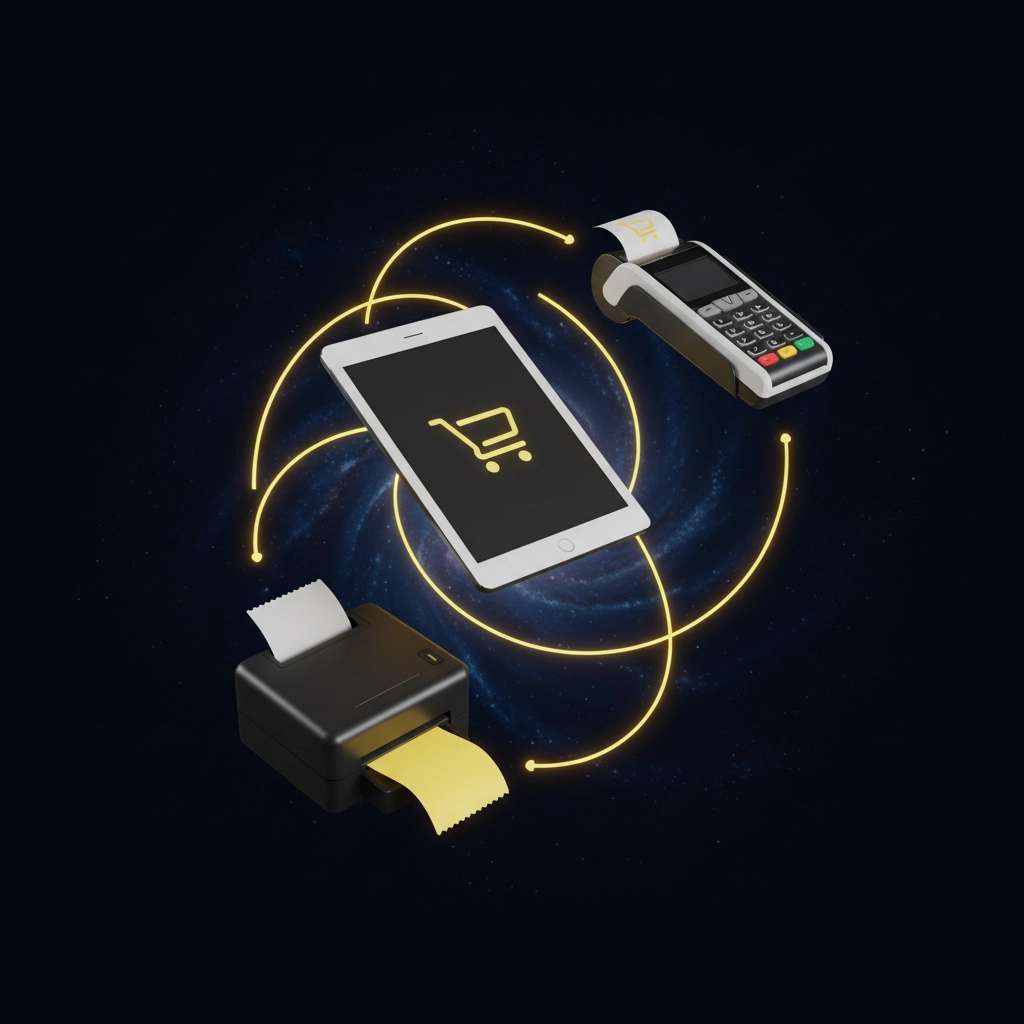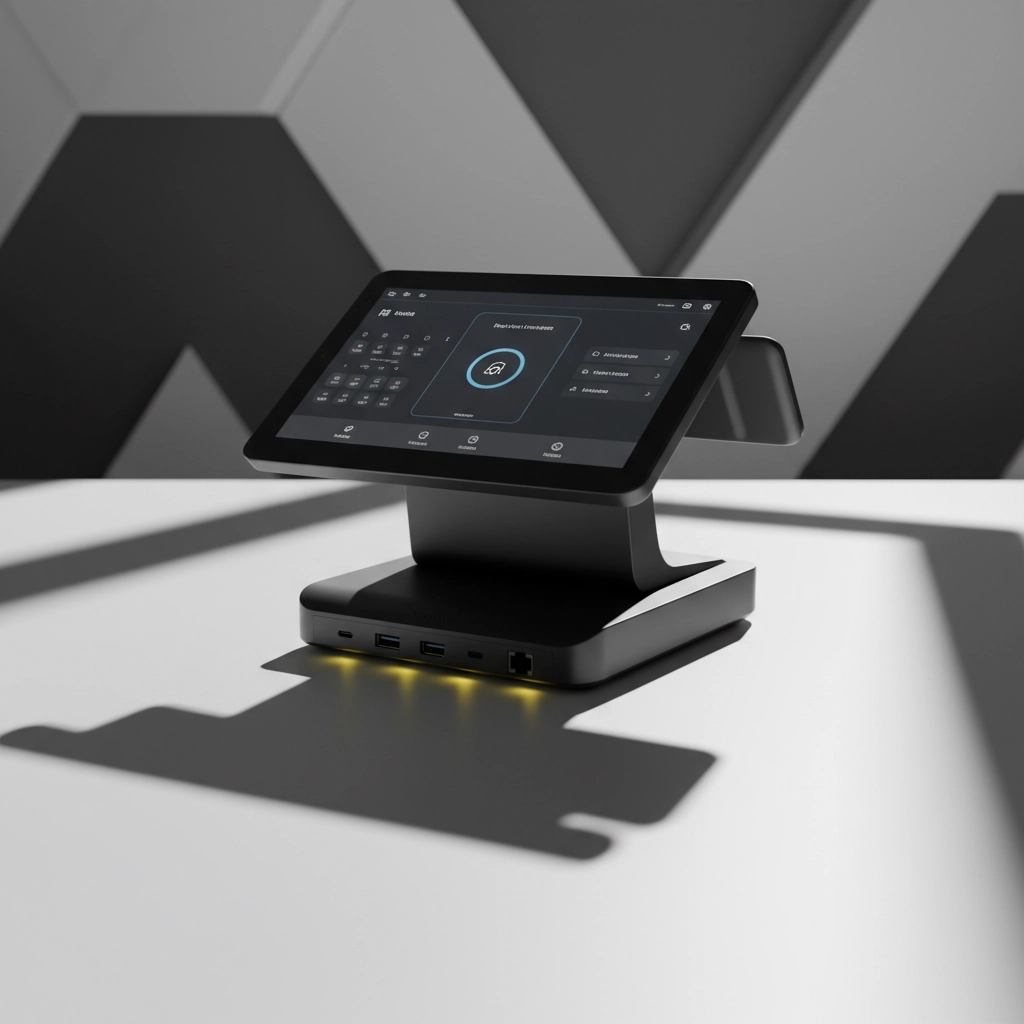
Let's cut to the chase: choosing between an all-in-one payment terminal (think Clover or Square) and a dedicated POS system with a separate payment terminal isn't just about the upfront cost. It's about flexibility, control, and where you see your business heading in the next few years.
If you've been wrestling with this decision, you're not alone. Small and medium businesses across North America are facing the same choice, and honestly, both options have their sweet spots. But here's the thing – the "best" choice depends heavily on your specific needs, growth plans, and how much control you want over your payment processing.
All-in-one payment terminals like Clover, Square, and similar systems bundle everything into a sleek package. You get your POS software, payment processing, and hardware all from one vendor. It's like buying a smartphone instead of a separate camera, music player, and phone.
The Good Stuff:
These systems shine when it comes to simplicity. Setup is usually straightforward – you're dealing with one vendor, one support team, and one integrated system. The data flows seamlessly between your sales tracking and payment processing, which means fewer headaches with reconciliation and reporting.
For new business owners who want to get up and running quickly, all-in-one systems can be a lifesaver. You don't need to research multiple vendors or figure out compatibility issues. Everything just works together from day one.
The user experience is typically polished too. Since the same company designed both the hardware and software, the interface feels cohesive and the learning curve is usually gentler for your staff.
The Not-So-Good Stuff:
Here's where things get sticky – you're locked into their ecosystem. Want to switch payment processors for better rates? Too bad. Found POS software that better fits your industry? Nope, you're stuck with what they offer.
This vendor lock-in can get expensive over time. Many all-in-one providers use their convenience as leverage for higher processing fees or monthly software costs. You might save time upfront, but pay more in the long run.
Plus, if your business grows or your needs change, you might find yourself replacing the entire system instead of just upgrading individual components. That's like having to buy a whole new car when you just need better tires.

On the flip side, dedicated POS systems paired with separate payment terminals give you the freedom to mix and match components based on your specific needs. Think of it like building a custom computer – you choose each part based on what works best for your situation.
Why Flexibility Matters:
With a dedicated setup, you can shop around for the best payment processor rates without changing your entire POS system. Found a processor that offers better rates for your industry? Switch over without missing a beat.
Your POS software choice isn't limited either. Need advanced inventory management? Specialized reporting for your restaurant? Integration with your e-commerce platform? You can choose software that actually fits your business instead of settling for a one-size-fits-all solution.
This approach also scales better. As your business grows, you can upgrade individual components without starting from scratch. Need more robust reporting? Upgrade just your POS software. Want to accept new payment types? Add compatible hardware without replacing everything else.
The Trade-offs:
More flexibility means more complexity. You're dealing with multiple vendors, which can complicate support when things go wrong. Integration between systems might require some technical know-how or professional setup.
The initial research and setup time is definitely longer. Instead of one decision, you're making several, and you need to ensure all the pieces work well together.

The Coffee Shop Owner: Sarah runs a busy coffee shop in Toronto. She needs fast transactions, basic inventory tracking, and simple reporting. An all-in-one system makes sense here – the complexity isn't worth it for her straightforward needs, and the streamlined setup means she can focus on making great coffee instead of managing tech.
The Growing Retailer: Mike owns three clothing stores across Ontario and is planning to expand. He chose a dedicated POS system with separate payment terminals because he wanted the flexibility to negotiate better processing rates as his volume grew. Plus, he can add features like advanced loyalty programs and e-commerce integration without replacing his entire system.
The Restaurant Chain: A regional restaurant group in the US needed specialized features for table management, kitchen display systems, and detailed food cost analysis. They went with dedicated systems because no all-in-one solution offered the restaurant-specific functionality they required.
Here's something most people don't consider upfront: the total cost of ownership over 3-5 years, not just the initial price tag.
All-in-one systems might seem cheaper initially, but those monthly software fees and higher processing rates add up. A dedicated system might cost more upfront but could save thousands annually in processing fees alone.
In Canada, this is especially relevant because payment processing regulations and rates can be quite different from the US market. Having the flexibility to choose processors that understand Canadian regulations and offer competitive rates can make a significant difference in your bottom line.
This is where solutions like BK Touch shine. We've designed our systems to give you the best of both worlds – the integration benefits of all-in-one systems with the flexibility of dedicated setups.
Our approach is processor-agnostic, meaning you can choose the payment processor that offers the best rates and service for your business. Want to switch processors later? No problem – you keep your POS system and just change the payment component.

The hardware is built to last and designed to integrate seamlessly with various software platforms. Whether you need basic retail functionality or complex multi-location management, you can customize your setup without vendor lock-in.
So, how do you choose? Ask yourself these questions:
How complex are your business needs? Simple operations often work well with all-in-one systems, while complex or specialized businesses benefit from dedicated setups.
What are your growth plans? If you're planning to expand significantly, dedicated systems offer more scalability.
How important is cost optimization? If processing fees are a significant expense, the flexibility to shop for better rates with dedicated systems can pay off big time.
Do you have technical support available? All-in-one systems require less technical management, while dedicated systems might need more hands-on setup and maintenance.
For most growing businesses, especially those with specific industry needs or plans for expansion, the dedicated approach offers better long-term value. The upfront complexity pays dividends in flexibility, cost savings, and scalability.
There's no universally "right" choice here – it depends entirely on your business situation. All-in-one systems work great for simple operations that value convenience over flexibility. Dedicated systems are ideal for businesses that need customization, want to optimize costs, or plan significant growth.
The key is being honest about your current needs and future plans. Don't just think about today – consider where you want your business to be in three years.
Ready to explore your options? Whether you're leaning toward an all-in-one solution or want to build a custom setup with maximum flexibility, we're here to help you find the right fit for your business. Check out our solutions and see how we can support your growth without locking you into limitations.